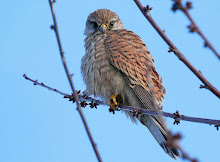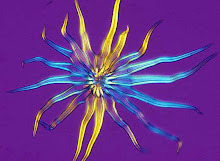There are two Campanula species that flower around haymaking time in Weardale. This is giant bellflower C.latifolia, which favours shady verges and - in this case - a permanently moist corner of a field near Stanhope Dene.
Harebell C. rotundifolia is characteristic of dry grassland, where its slender stems mean that the bells constantly dance in the wind, and there are some lovely patches of it around some Weardale haymeadows where ...
.... farmers have been turning the new-mown hay, hoping that it will dry in the sun before wet weather arrives.


























Phil I can post the ones I took this morning now I know what they are. Many thanks.
ReplyDeleteLovely shots Phil.
ReplyDeleteI've only ever seen the second one, and that was in Norfolk.
The second picture is incredibly poetic!
ReplyDeleteI guess they must be haymaking in Teesdale too, Adrian?
ReplyDeleteThere are some very fine displays of giant bellflower around here at the moment, Keith
ReplyDeleteHi lotusleaf, harebells are almost never still
ReplyDeleteGiant bellflower and Harebell takes me back to chilhood. I first saw Harebell growing in the dunes at Druridge bay when I was 12 and Giant bellflower gracing the steep bank leading to the ford at Ulgham where it still grows today. Both plants are common in Morpeth along the banks of the Wansbeck although Harebell prefers the drier grassy areas.
ReplyDeleteHi Nigel, in the past I've seen some fine displays of harebell along the edge of the golf course between Embleton and Dunstanburgh and also on Lindisfarne, and last time I visited Howick Hall there were some impressive displays of bellflower in the woods near the entrance.
ReplyDelete